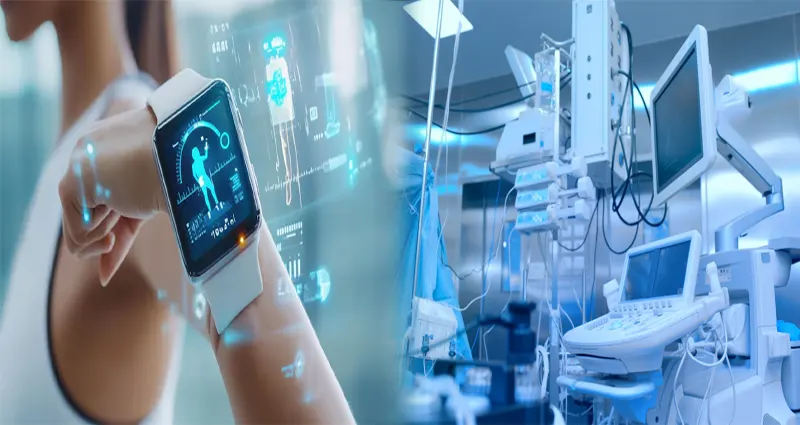In the ever-evolving landscape of healthcare, technology plays a pivotal role in revolutionizing the way patient care is delivered. From streamlining processes to enhancing diagnostics and treatment options, innovative healthcare technologies are continuously shaping the future of medicine and making a significant impact on patient outcomes. Let’s explore some of the cutting-edge technologies that are driving positive changes in patient care:
1. Telemedicine and Virtual Care:
Telemedicine has emerged as a valuable tool in providing remote healthcare services to patients, especially in underserved or rural areas. Through secure video conferencing or messaging platforms, healthcare providers can consult with patients, offer diagnoses, and even prescribe medication without requiring an in-person visit. This not only improves access to care but also minimizes the need for unnecessary hospital visits, leading to more efficient and cost-effective healthcare delivery.
2. Artificial Intelligence (AI) in Diagnostics:
AI-powered technologies are revolutionizing the diagnostic process by analyzing vast amounts of patient data to detect patterns and trends that may not be apparent to the human eye. AI algorithms can help radiologists detect abnormalities in medical imaging, assist in genetic testing for personalized medicine, and even predict potential health issues proactively. By enhancing diagnostic accuracy and efficiency, AI is leading to earlier detection and treatment of diseases, ultimately improving patient outcomes.
3. Wearable Health Devices:
Wearable health devices, such as smartwatches and fitness trackers, are empowering patients to take control of their health by monitoring vital signs, physical activity, and other health metrics in real-time. These devices enable individuals to track their progress, stay motivated to make healthier choices, and provide healthcare providers with valuable data to personalize treatment plans and monitor patient progress remotely. By promoting proactive health management, wearable devices are driving better outcomes for patients with chronic conditions or those looking to adopt healthier lifestyles.
4. Robotics in Surgery:
Robotic-assisted surgery is transforming the field of surgery by offering precision, dexterity, and control that surpass traditional surgical techniques. With robotic systems, surgeons can perform minimally invasive procedures with enhanced accuracy and reduced recovery times, leading to fewer complications and improved patient outcomes. From complex cardiac surgeries to delicate neurosurgical procedures, robotics in surgery are pushing the boundaries of medical innovation and optimizing patient care.
5. Predictive Analytics and Population Health Management:
Predictive analytics leverage data-driven insights to anticipate and address healthcare needs proactively, ultimately improving population health outcomes. By analyzing historical data, demographic trends, and social determinants of health, healthcare providers can identify high-risk patient populations, tailor interventions, and allocate resources strategically to prevent adverse health events. Through predictive analytics and population health management initiatives, healthcare organizations can optimize patient care, reduce hospital readmissions, and enhance overall health outcomes for communities.
Innovative healthcare technologies are reshaping the healthcare landscape and driving improvements in patient outcomes across the globe. By embracing these advanced technologies and integrating them into clinical practice, healthcare providers can deliver more precise, personalized, and efficient care that maximizes patient well-being and quality of life. As we continue to witness the rapid evolution of healthcare technology, one thing remains clear: the future of patient care is bright, innovative, and full of possibilities for improving outcomes and transforming lives.










